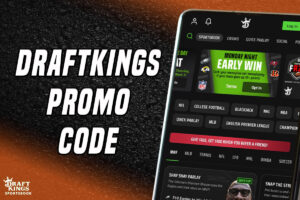This guest blog was submitted by Bryan Borucki, inspired in part by, The Sting of the Player Protests Still Burns
**********
It’s been nearly 2 years since Colin Kaepernick first protested during the playing of the National Anthem before one of his games. Kaepernick’s job isn’t the only thing that’s been lost over this time. The true meaning and understanding of his protest have been lost in translation as well. When first asked about his protests publicly in the 2016 preseason, the quarterback said:
“People don’t realize what’s really going on in this country. There are a lot of things that are going on that are unjust. People aren’t being held accountable for. And that’s something that needs to change. That’s something that this country stands for freedom, liberty and justice for all. And it’s not happening for all right now.”
When later asked how he would respond to those who saw the flag as a sign for the military, Kaepernick expressed his respect and gratitude for the military who he believed were experiencing some of the injustice throughout the United States.
Despite all these explanations being laid out clearly when Kaepernick first kneeled during the national anthem, all the players who have joined in protest since, have been accused of disrespecting the country, flag, military, and even the city they play in. The conversation the protests started have seemingly only separated the players from the general public more given the results of attendance and TV ratings drops.
The Ravens weren’t involved in the protests until Donald Trump’s comments in September 2017 when he infamously referred to players as sons of bitches.
“Wouldn’t you love to see one of these NFL owners, when somebody disrespects our flag, to say, ‘Get that son of a bitch off the field right now. Out! He’s fired. He’s fired!’”
THAT became the proverbial straw that broke the camel’s back for many players who restrained from protesting, using Trump’s message as an opportunity to show their strength and unity. These protests received lots of criticism and viewed by many as an insult to the military and disrespect to the country.
Amidst controversy, the Ravens next addressed the protests before the October 2, 2017 game against the Oakland Raiders. Then the team knelt in unison for a prayer before the anthem to express their hope for a brighter future while respecting the flag. A large portion of the Ravens’ fans responded by booing through the prayer…
Protests of the anthem by kneeling were no longer present on the Ravens sideline after that. Ravens ownership and head officials cited the protests as a reason for attendance dropping with goals of bringing fans back with cheaper concessions and stadium improvements. With an issue that’s evolved into a largely political discussion, it’s clear that commenting further could only fuel the issue.
The longer the focus remains on the sidelines and away from the NFL, the longer Kaepernick’s intent is lost and the message is ignored. People of color are experiencing widespread police brutality and being stripped of the liberties that define USA. Ever since Freddie Gray’s death, Baltimore has been the nation’s clearest example that these acts of oppression continue.
Instead of waiting on an apology for feeling disrespected by silent protest before a sports game, bring your attention to the reason WHY the players kneel.
Maybe it’s not the team that needs to apology to the city, but rather the city to the players.
“Hey D Watkins, how has police and community relations changed in Baltimore since the death of Freddie Gray?” pic.twitter.com/kbg78Fp4yb
— d. Watkins (@dwatkinsworld) August 11, 2018
Guest blog submitted by Bryan Borucki










